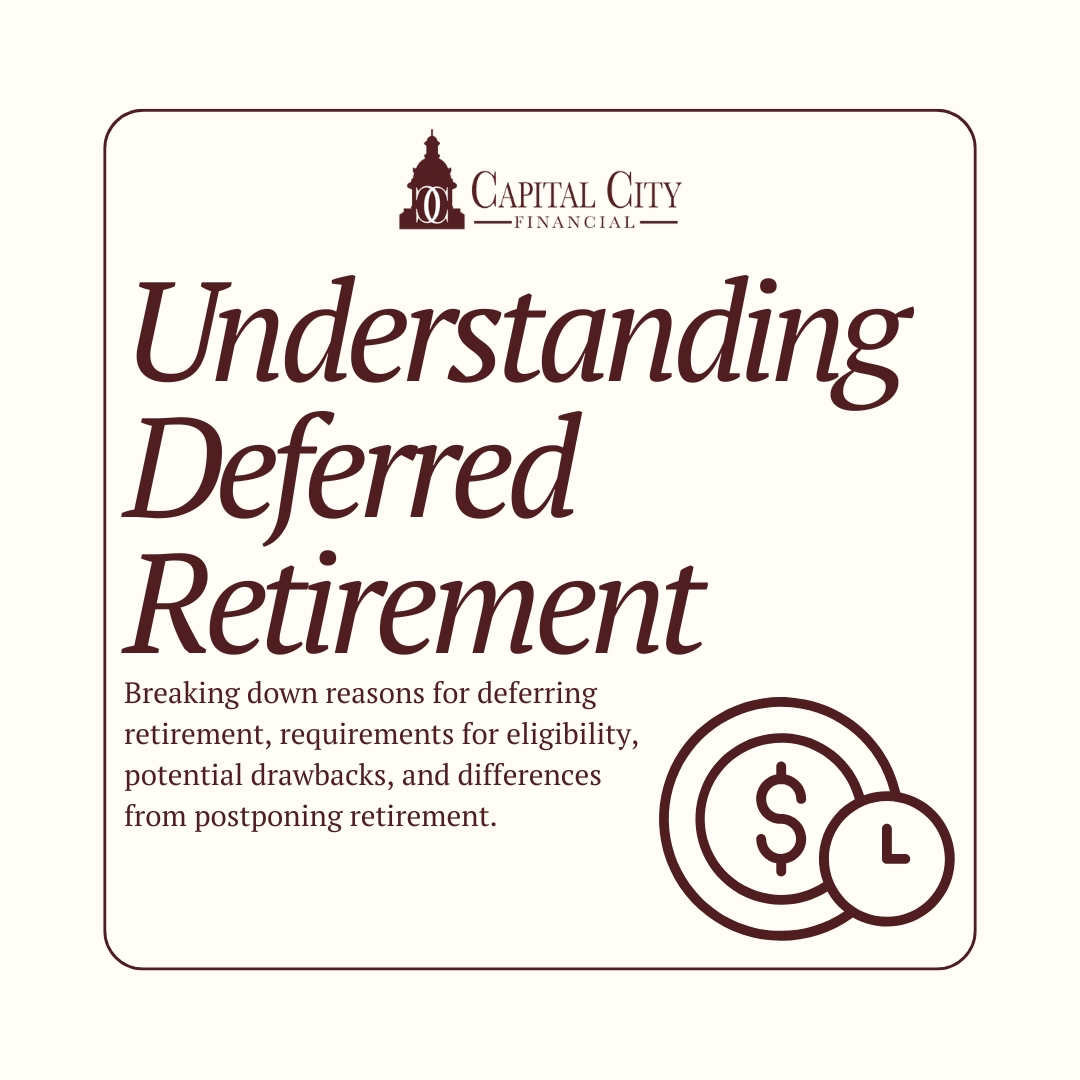
Understanding Deferred Retirement
What Does It Mean to Defer Retirement?
Deferred retirement is a federal benefit option available to employees who have completed at least five years of creditable service. It allows eligible individuals to defer retirement and delay receiving their annuity—whether it’s Social Security or a federal pension—until a later date in order to increase their monthly benefit amount.
If you have five years of federal service, you’re eligible to begin receiving your pension at age 62. Those with at least 10 years of creditable service, including five years of civilian work, can begin receiving their pension at their Minimum Retirement Age (MRA), which can be as early as 57.
Deferred retirement is often considered by federal employees who leave government service before reaching full retirement eligibility. It offers flexibility for those who wish to pursue other career opportunities without forfeiting the federal retirement benefits they’ve already earned. Delaying your annuity until age 62 can also help you avoid early retirement penalties—specifically, the age reduction penalty, which reduces your annuity by 5/12 of 1% for every month your annuity starts before you turn 62.
Potential Drawbacks of Choosing to Defer Retirement
Although there are valid reasons to defer retirement, there are several potential drawbacks to consider before choosing this option. Below are two important factors:
Loss of Certain Benefits
When a federal employee chooses to defer retirement, they lose eligibility for Federal Employee Health Benefits (FEHB), Federal Employee Group Life Insurance (FEGLI), and the Federal Employees Dental and Vision Insurance Program (FEDVIP). Additionally, they are not eligible for the Retiree Annuity Supplement.
Delayed Cost-of-Living Adjustments (COLAs)
Cost-of-living adjustments are increases in retirement payments intended to offset inflation and maintain purchasing power. However, when you defer retirement, COLAs are not applied to your annuity until age 62—even if your annuity begins at your MRA.
Deferred Retirement vs. Postponed Retirement
Due to the drawbacks of deferred retirement, some individuals consider the alternative—postponed retirement. These two options are often confused but have important differences.
You may choose to defer retirement before reaching your MRA. In contrast, postponed retirement is only available if you have reached your MRA and have at least 10 years of creditable service. Postponing retirement provides additional benefits that deferred retirement does not. For example, individuals who postpone retirement remain eligible for FEHB, FEGLI, and FEDVIP. They also begin receiving COLAs as soon as their annuity starts, even if they are under age 62.
Conclusion
If you work in the federal sector, it’s essential to consider all retirement options, especially if you’re planning to leave your position before reaching your MRA. Deferred retirement is a flexible choice, though it comes with a few potential drawbacks. In some situations, it may be the most beneficial option, while in others, postponed retirement may offer greater long-term advantages.
Curious to learn more about whether deferred or postponed retirement is right for you? Our financial advisors are happy to help you evaluate your options. Schedule a complimentary consultation today by calling our office at (803) 782-0671.
